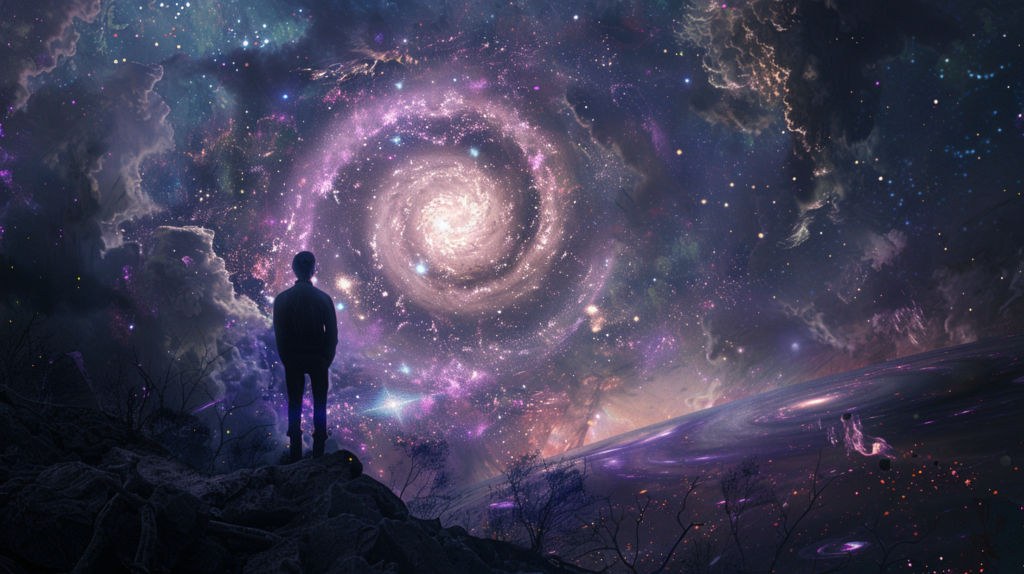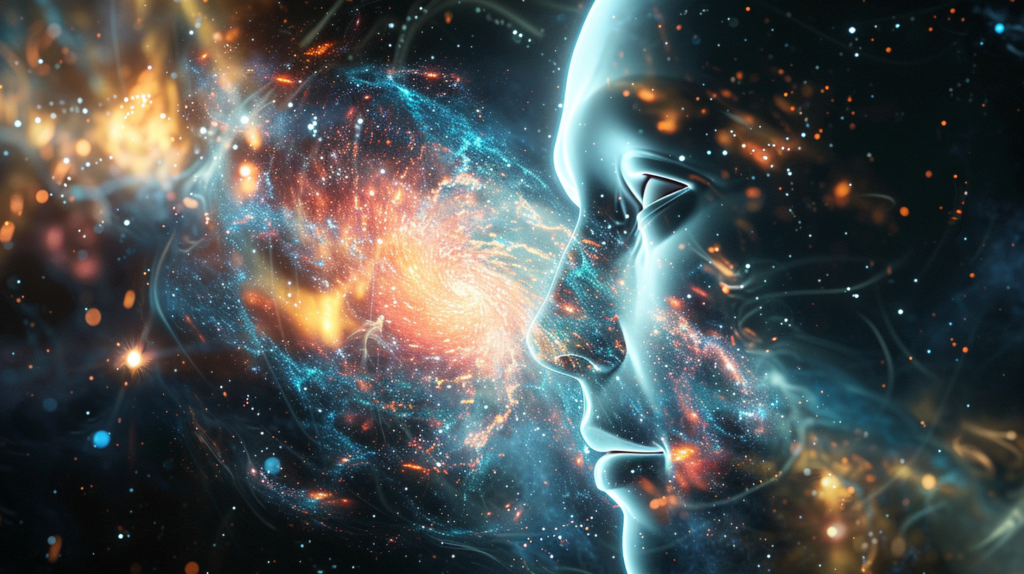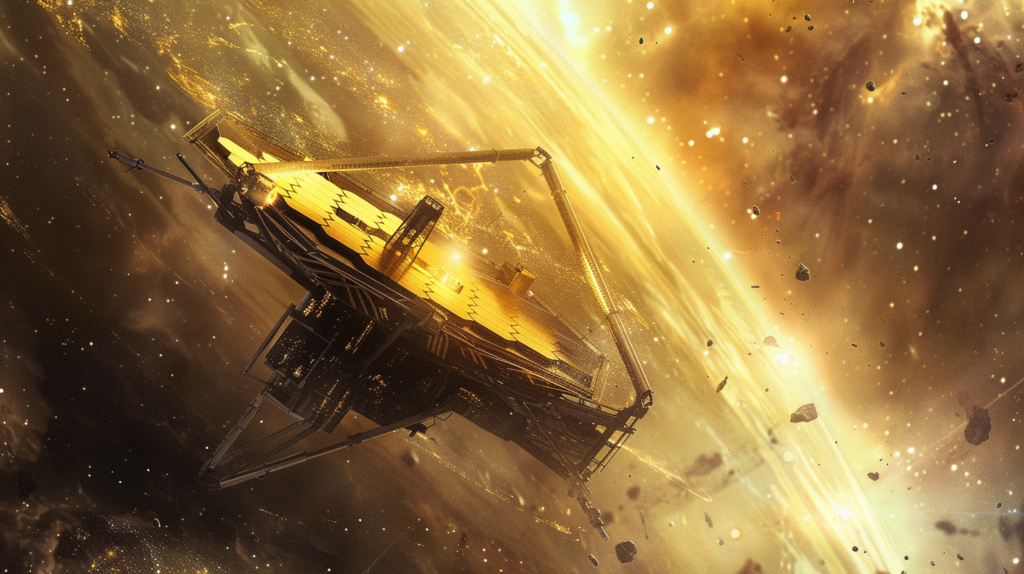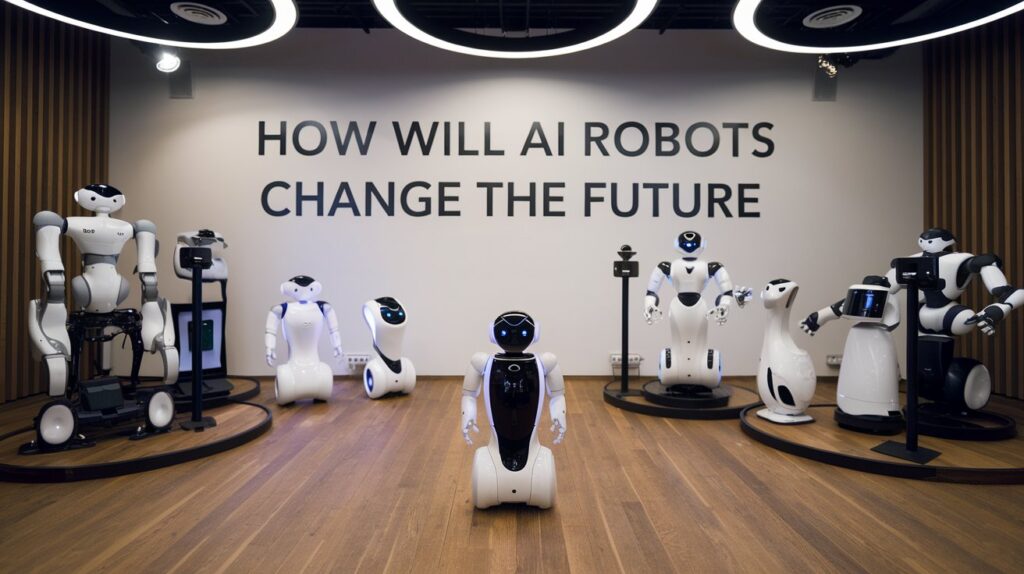How AI Is Helping Astronomers Study the Universe

The integration of artificial intelligence into astronomy represents a significant advancement in our ability to analyze the vast amounts of data generated by modern observatories. With projects like the Vera C. Rubin Observatory poised to produce over 60 petabytes of information, machine learning algorithms are becoming indispensable for tasks ranging from galaxy identification to the detection of dark matter. However, as AI continues to shape our understanding of the cosmos, it raises important questions about the ethical implications and future challenges that lie ahead. What might these developments mean for the next frontier of space exploration?
How AI Is Helping Astronomers Study the Universe audio file

Key Takeaways
- AI enhances data processing for large astronomical datasets, crucial for analyzing over 60 petabytes from the Vera C. Rubin Observatory.
- Machine learning algorithms achieve up to 98% accuracy in identifying galaxies, aiding astronomers in classifying celestial objects efficiently.
- Anomaly detection algorithms identify unexpected celestial phenomena, facilitating the discovery of new and intriguing astronomical objects.
- AI drives advanced simulations and predictive modeling, improving measurements of dark matter and dark energy properties in cosmology.
- The integration of AI in space exploration enables the identification of potentially habitable exoplanets and biosignatures on Mars.
Role of AI in Astronomy
The integration of artificial intelligence (AI) in astronomy has revolutionized data processing and analysis, enabling astronomers to manage and interpret the vast and complex datasets generated by contemporary observational technologies. The Vera C. Rubin Observatory, for instance, is projected to produce over 60 petabytes of data in the next decade, necessitating the deployment of AI to efficiently parse this unprecedented volume of information.
Machine learning algorithms have demonstrated remarkable proficiency in astronomical image processing, achieving classification accuracy rates of up to 98% in galaxy identification. This exceeds traditional manual methods, expediting data analysis and enhancing the clarity and usability of images.
Furthermore, AI’s ability to identify anomalies in astronomical data plays a crucial role in fostering significant discoveries, as it can flag unexpected celestial objects that might elude conventional detection techniques.
Recent advancements, such as generative models, have further refined the imaging of black holes, yielding sharper results that grant new insights into their characteristics and behaviors.
Collectively, these AI-driven methodologies not only streamline the analytical process but also expand the horizons of astronomical research, paving the way for groundbreaking discoveries in the universe.
AI’s Impact on Cosmology

Harnessing advanced computational techniques, artificial intelligence is fundamentally transforming cosmology by enhancing the analysis of dark matter and dark energy through sophisticated simulations and predictive modeling. AI enables cosmologists to extract meaningful insights from complex datasets, particularly those derived from simulations that emulate cosmic changes and galaxy formation dynamics.
Neural networks, a subset of AI, play a pivotal role in measuring the properties of dark matter and dark energy, significantly improving the accuracy of these interpretations. This augmentation of data analysis capabilities allows researchers to explore phenomena such as black holes and the dynamics surrounding them in unprecedented detail.
Furthermore, machine learning techniques are instrumental in identifying biosignatures on Mars and analyzing solar phenomena, thus broadening the scope of astrobiological research. The work of pioneers like Vera Rubin, who laid the groundwork for understanding dark matter, is now augmented by AI technologies that facilitate the detection of patterns indicative of life on exoplanets.
As AI continues to evolve, its application in cosmology is poised to redefine research methodologies, fostering deeper explorations into the universe’s fundamental characteristics and the mysteries it holds.
Upcoming Data Challenges

As the field of cosmology advances with AI-driven methodologies, upcoming data challenges are set to emerge, particularly in the management and analysis of the vast datasets generated by next-generation astronomical observatories.
The Vera C. Rubin Observatory is projected to produce over 60 petabytes of raw data during its decade-long operation, while the James Webb Space Telescope will contribute significantly with its own high-resolution imagery. The sheer volume of data—up to 15 terabytes per night—will necessitate the deployment of advanced AI tools to facilitate effective analysis.
One of the most pressing challenges will be the implementation of anomaly detection algorithms, which are essential for identifying unexpected phenomena such as supermassive black holes and other celestial anomalies.
The ability to flag unusual events swiftly will have a significant impact on the field of astronomy, potentially leading to groundbreaking discoveries. Continuous advancements in AI technology will be crucial, enabling researchers to keep pace with the ever-increasing data volumes, ensuring that critical insights are not lost in the overwhelming influx of information.
Addressing these upcoming challenges will be vital for the future of astronomical research.
Ethical Concerns and Challenges
Concerns regarding the ethical implications of AI in astronomy are increasingly prominent, particularly as reliance on algorithmic analysis raises questions about data interpretation, human oversight, and potential biases in scientific research. The implementation of AI, especially neural networks, to analyze vast amounts of astronomical data necessitates rigorous examination of these ethical challenges.
The potential for misinterpretation stemming from programming errors underscores the importance of maintaining scientific integrity. As AI systems become integral to the discovery process, the necessity for human oversight becomes critical, ensuring that automated analyses do not overshadow the fundamental human elements of inquiry and skepticism.
Furthermore, the presence of biases within AI algorithms can inadvertently skew results, leading to flawed conclusions that could misguide future discoveries.
Technological advancement in AI must be approached with caution, as societal perceptions shaped by media portrayal can complicate the ethical landscape. Ensuring transparency in how AI systems operate and the algorithms they employ is essential in addressing these ethical concerns.
Balancing the benefits of AI with the preservation of human values in scientific research is paramount to fostering an environment conducive to accurate and responsible astronomical exploration.
Future Prospects in Space Exploration
The integration of artificial intelligence in space exploration is set to revolutionize methodologies, enhancing the efficiency and accuracy of astronomical discoveries while enabling real-time data analysis and operational optimization.
The future of space exploration, driven by advancements in AI and machine learning, promises significant breakthroughs, particularly in data processing at facilities like the Vera C. Rubin Observatory, which generates over 60 petabytes of data.
AI’s capabilities will be pivotal in the search for exoplanets, facilitating the identification of potentially habitable worlds by analyzing vast datasets with unprecedented precision.
Moreover, AI is expected to assist in the detection of biosignatures on Mars and other celestial bodies, thereby transforming our understanding of extraterrestrial life.
Additionally, the involvement of citizen scientists will enhance data interpretation and discovery processes, harnessing collective intelligence to further propel research initiatives.
As AI technologies continue to evolve, they will not only streamline operational efficiencies but also enable astronomers to uncover unexpected celestial phenomena, ultimately reshaping our comprehension of the universe and our place within it.
The future of space exploration, therefore, hinges on the continued integration of AI and machine learning methodologies.

Frequently Asked Questions
How Does AI Help in Astronomy?
AI enhances astronomy through advanced machine learning techniques for data analysis, image recognition, and anomaly detection. It facilitates telescope automation, predictive modeling, signal processing, cosmic simulations, and pattern identification, significantly accelerating the pace of astronomical discoveries.
How Is AI Helping Nasa?
AI applications at NASA enhance data analysis through predictive modeling, anomaly detection, and image classification. Techniques like simulation and telescope automation optimize satellite imagery usage, facilitating accurate cosmic event prediction and improving overall mission efficacy.
Can AI Explain the Universe?
AI algorithms enhance our understanding of cosmic mysteries through advanced data analysis and machine learning techniques. By employing deep learning and pattern recognition, these computational models effectively classify astrophysical phenomena and celestial events, revealing profound insights into the universe.
How Do Astronomers Learn About the Universe?
Astronomers learn about the universe through stellar evolution studies, cosmic microwave background analysis, galaxy formation research, dark matter investigations, gravitational wave detection, exoplanet discovery, astronomical imaging, redshift analysis, and supernova classification, enhancing our understanding of cosmic phenomena.
Conclusion
In conclusion, the integration of artificial intelligence into astronomy represents a transformative advancement in data analysis and interpretation.
By effectively managing vast datasets and enhancing observational techniques, AI facilitates deeper insights into cosmological phenomena and the search for extraterrestrial life.
However, ongoing ethical considerations and the challenges posed by unprecedented data volumes necessitate careful scrutiny.
The future of space exploration is poised for significant breakthroughs, driven by the continuous evolution of AI technologies in astronomical research.







Responses